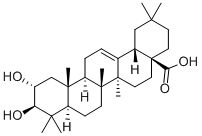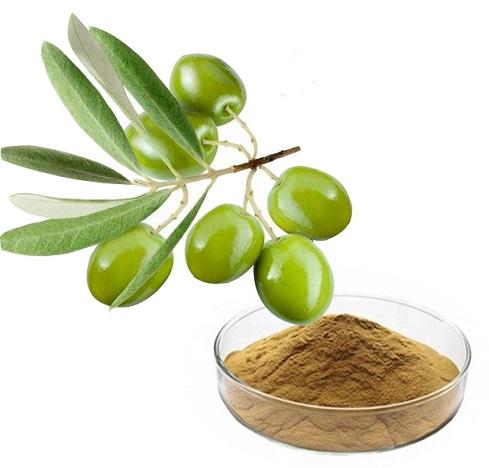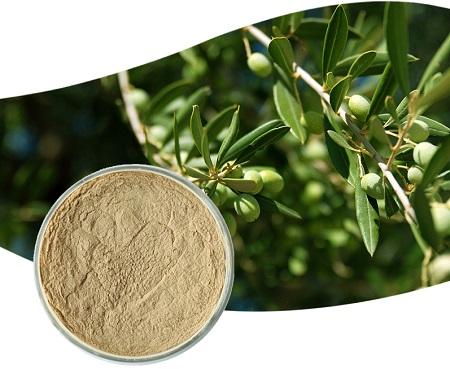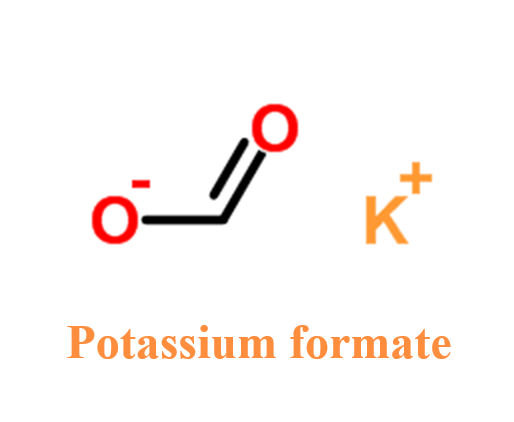Maslinic acid: used in skincare
Introduction
Maslinic acid (2-α, 3-β-dihydroxyolean-12-en-28-oic acid; MA), a plant-derived natural triterpenoid compound, is isolated from Olea europaea L. and has been found in a variety of medicinal plants[1]. Pure MA is a white powder, molecular formula: C30H48O4, molecular weight: 472.70, melting point: 266–268 °C. It is insoluble in water and petroleum ether, ethanol and methanol, and ethyl acetate, benzene and chloroform. Research has shown that a high MA concentration does not cause discomfort or death when treating animal disease models. Therefore, MA is a natural compound with low toxicity and side effects.

In plants
Maslinic acid is widely found in various plants, including olive, loquat leaves, red dates, eucalyptus, crape myrtle, sage, plantain, prunella vulgaris, spiny leaf dong, etc. Olive oil is rich in MA. Olive oil is the traditional edible oil of people in Mediterranean coastal countries and has good nutritional and health care effects. In addition, it is also widely used in beauty care, showing that MA is very safe for the human body. The research indicates that the MA content of extra virgin olive oil in different regions is 20–98 mg/kg, the MA content of high acid value olive oil in different regions is 212–356 mg/kg, the MA content in olive residue is the highest, and the MA content in olive residue in different regions is 212–1485 mg/kg. Therefore, olive pomace is often used as raw material for MA extraction.
Biological activity
Maslinic acid has shown many biological activities, including anti-malarial, anti-protozoan, anti-virus, antioxidant, anti-diabetogenic, anti-inflammatory, and anti-tumour. Maslinic acid may also prevent oxidative stress and the production of proinflammatory cytokines. Furthermore, animal studies have shown that oral administration of maslinic acid induces anti-inflammatory and anti-arthritis effects. In addition, maslinic acid enhanced immune responses by elevating macrophage phagocytosis and natural killer cell activities in WEHI-3 cell-generated leukemic mice[2].
Maslinic acid significantly enhanced tumour necrosis factor α (TNFα)-induced inhibition of pancreatic cancer cell proliferation and invasion and potentiated TNFα-induced cell apoptosis by suppressing TNFα-induced nuclear factor-κB (NF-κB) activation in a dose- and time-dependent manner. Maslinic acid inhibited TNFα-induced IBa degradation, p65 phosphorylation, and nuclear translocation. It decreased the expression levels of NF-κB-regulated genes, including genes involved in tumour cell proliferation (cyclin D1, COX2, and c-Myc), invasion (MMP-9 and ICAM-1 (Intercellular Adhesion Molecule 1)), and angiogenesis (vascular endothelial growth factor (VEGF)). Moreover, maslinic acid demonstrated proapoptotic effects in several cell lines. In a recent study, the effects of maslinic acid on the metastatic capacity of prostate cancer cells were examined. Maslinic acid downregulated both basal and EGF-stimulated secretion of matrix metallopeptidase (MMP)-9, MMP-2, urokinase-type plasminogen activator, VEGF, and tissue inhibitors of metalloproteinases (TIMP)-1, as well as the expression of uPA receptors, intercellular adhesion molecules, vascular cell adhesion molecules, and E-cadherin while increasing TIMP-2 secretion. Maslinic acid reduced the levels of hypoxia-inducible factor-1α (HIF-1α) protein and mRNA; the reduction was accompanied by reduced stability, nuclear levels, and transcriptional activity of HIF-1α. Maslinic acid markedly inhibited the migration, invasion, and adhesion of DU145 prostate cancer cells. In in vivo models (athymic nu/nu mouse model), maslinic acid significantly suppressed pancreatic tumour growth and induced tumour apoptosis. It inhibited NF-κB-regulated antiapoptotic gene expressions, such as Survivin and Bcl-xl.
Used in skincare
Maslinic acid has anti-inflammatory, antioxidant and antimicrobial properties in skin care.
Maslinic acid can be considered an anti-inflammatory agent because it suppresses the production of prostaglandin E2 (PGE2), which is involved in triggering skin inflammation. PGE2 levels increase during inflammation and attract immune system cells, resulting in swelling, redness, and itching. Apart from inhibiting PGE2 production, maslinic acid also reduces the expression of COX-2. COX enzymes are involved in converting arachidonic acid into PGE2 and more than two dozen other fatty acids. The COX enzymes have been divided into two major subgroups: COX-1 and COX-2. COX-1 is expressed constitutively in most tissues, while COX-2 expression usually is low. Still, it can increase as a response to certain stimuli, such as the presence of bacteria or viruses, trauma, or exposure to environmental carcinogens.
Inhibition of both isoforms allows for inhibiting the production of several prostaglandins at once, which reduces the likelihood that bacteria or viruses will become resistant to these anti-inflammatory drugs. Although COX-2 inhibitors have been approved for use in humans and are being investigated as agents to prevent colon cancer, a recent study demonstrated that a single dose of aspirin could interfere with converting arachidonic acid into PGE2 and reduce COX-2 levels. According to other studies, 125 mg of maslinic acid has the same effect as aspirin because it reduces COX-2 production by 50-60%.
Maslinic acid is an antioxidant compound, and its antioxidant activity is comparable to the synthetic antioxidant butylated hydroxyanisole (BHA). Maslinic acid can scavenge free radicals and increase the total phenolic compounds present in an aqueous extract of olive leaves, thus indicating that maslinic acid may contribute to the potential antioxidant activity of olive leaf extracts.
The antimicrobial activity of maslinic acid was demonstrated against two Gram-positive bacteria, namely Staphylococcus aureus and Bacillus subtilis, responsible for skin infections in immunocompromised patients. Maslinic acid may also act as an effective antimicrobial agent against pathogenic bacteria such as "Pseudomonas aeruginosa."
References:
[1] KUNG-WEN LU. Maslinic Acid Induces DNA Damage and Impairs DNA Repair in Human Cervical Cancer HeLa Cells.[J]. Anticancer research, 2020, 40 12. DOI:10.21873/anticanres.14709.[2] YAN HE. Maslinic Acid: A New Compound for the Treatment of Multiple Organ Diseases.[J]. Molecules, 2022, 27 24. DOI:10.3390/molecules27248732.
You may like
Related articles And Qustion
See also
Lastest Price from Maslinic acid manufacturers
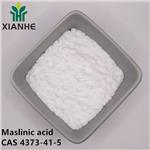
US $0.00/KG2025-04-24
- CAS:
- 4373-41-5
- Min. Order:
- 1KG
- Purity:
- 0.99
- Supply Ability:
- 1000KG
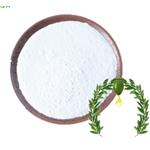
US $0.00/g2025-04-21
- CAS:
- 4373-41-5
- Min. Order:
- 1g
- Purity:
- HPLC≥98%
- Supply Ability:
- 100kg
